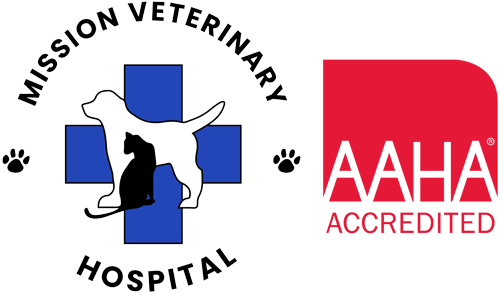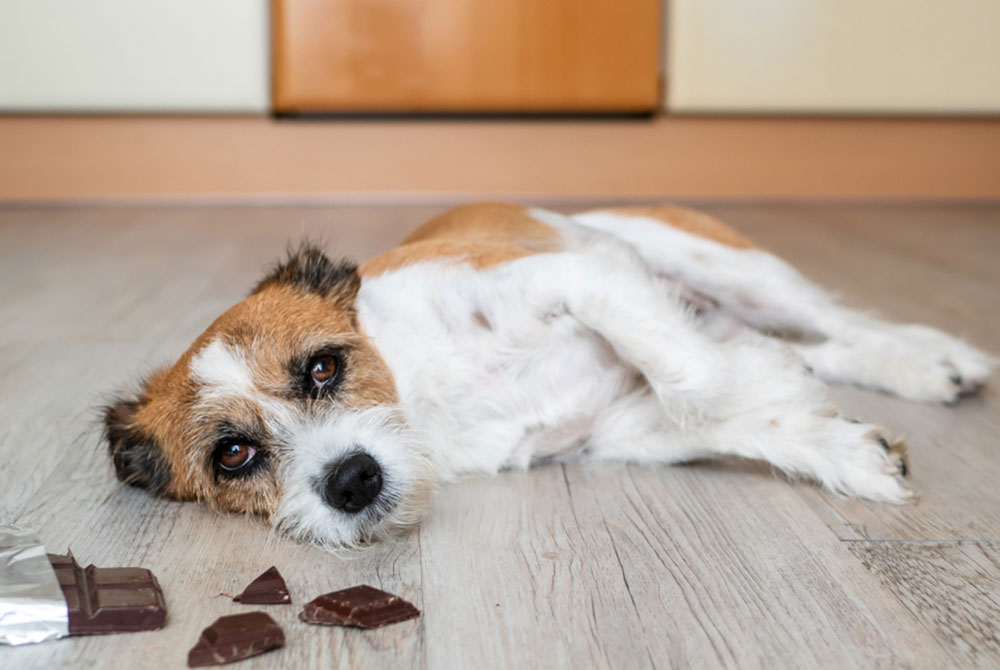Did you know that over 200,000 cases of pet poisoning are reported in the United States each year? It’s an alarming statistic, and as pet owners, we naturally want to keep our pets safe from harm. But accidents can happen—your dog might get into a toxic food, or your cat might nibble on a poisonous plant. Knowing what to do in these situations can save your pet’s life.
At Mission Veterinary Clinic in Granada Hills, CA, we frequently treat emergency cases involving toxin exposure. In this guide, we’ll walk you through the common signs of pet poisoning, how to react quickly, and the best ways to prevent these accidents in the future.
Common Household Poisons for Pets
Your home is filled with everyday items that can be dangerous to pets, and you may not even realize it. Here are some of the most common household poisons:
- Chocolate: Dogs are particularly sensitive to theobromine, a compound in chocolate that can cause vomiting, diarrhea, seizures, and in severe cases, death. The darker the chocolate, the more dangerous it is.
- Grapes and Raisins: Even small amounts of grapes or raisins can lead to kidney failure in dogs.
- Household Cleaners: Common cleaning agents like bleach, ammonia, and disinfectants are harmful if ingested or inhaled by pets.
- Medications: Both over-the-counter and prescription drugs, such as ibuprofen, acetaminophen, and antidepressants, are toxic to pets.
- Toxic Plants: Lilies, sago palms, and oleander are extremely dangerous to pets, particularly cats, and can cause serious health issues like kidney failure or heart problems.
If you suspect your pet has come into contact with any of these toxins, it’s essential to act quickly.
Pet Poisoning Symptoms
Recognizing the symptoms of pet poisoning can help you take action fast. Keep an eye out for the following signs:
- Vomiting or diarrhea: The most common and often the first symptoms of poisoning.
- Excessive drooling: Pets may drool more than usual after ingesting something harmful.
- Tremors or seizures: Neurological signs like shaking or convulsions indicate severe poisoning.
- Lethargy or weakness: Your pet may seem unusually tired or unable to stand.
- Difficulty breathing: Some toxins affect the respiratory system, leading to labored breathing.
If your pet exhibits any of these symptoms, don’t wait—call us at Mission Veterinary Clinic or head to our clinic in Granada Hills immediately.
What to Do if Your Dog or Cat Eats Something Toxic
If your pet has eaten something poisonous, your quick response is vital. Here’s what you should do:
- Stay Calm
Panicking won’t help your pet. Take a deep breath and stay focused. This will help you act efficiently and correctly. - Remove the Toxin
If possible, take away any remaining poison from your pet’s environment. Whether it’s a toxic food item or a plant, removing it will prevent further ingestion. - Monitor for Symptoms
Check your pet for any signs of poisoning, such as vomiting, drooling, or unusual behavior. Note that symptoms may not appear immediately, so stay alert. - Contact Your Veterinarian or a Poison Control Center
Call your vet or the ASPCA Animal Poison Control Center at (888) 426-4435 for advice. At Mission Veterinary Clinic, we’re ready to assist you in any pet poisoning emergency. Provide details about the toxin and your pet’s condition to receive tailored advice. - Don’t Induce Vomiting Without Veterinary Guidance
Some substances can cause more harm if vomited, such as caustic chemicals. Only induce vomiting if a veterinarian or poison control expert advises you to do so. - Get to the Vet Immediately
Time is critical when treating poisoning. If advised by a vet, bring your pet to Mission Veterinary Clinic or the nearest emergency vet clinic. Treatment options may include inducing vomiting, administering activated charcoal to absorb toxins, or providing IV fluids to support your pet’s organs.
How to Prevent Pet Poisonings
Preventing accidental poisoning is the best way to keep your pets safe. Here are some steps to pet-proof your home:
- Store Medications Safely: Keep all medications, whether prescription or over-the-counter, in cabinets out of your pet’s reach.
- Use Pet-Safe Cleaning Products: Switch to non-toxic cleaning agents, or keep your pets out of rooms being cleaned with strong chemicals.
- Keep Toxic Foods Away: Ensure foods like chocolate, grapes, raisins, and onions are stored securely and never fed to your pets.
- Remove Hazardous Plants: Research plants before bringing them into your home to make sure they’re pet-friendly. If in doubt, opt for plants like spider plants or Boston ferns, which are safe for pets.
When to Seek Emergency Care for Pet Poisoning

If you suspect your pet has ingested something harmful, don’t hesitate to seek emergency care. At Mission Veterinary Clinic, we’re equipped to handle cases of pet poisoning with prompt and compassionate care. Call us at (818) 363-8143 or learn more about our emergency services in Granada Hills.
When it comes to pet poisoning, time is of the essence. Taking swift action can save your pet’s life.
Conclusion
Accidental poisonings can happen to even the most cautious pet owners. The key is knowing how to respond quickly and effectively. If your pet ever ingests a harmful substance, remember to stay calm, remove the toxin, and contact a veterinarian immediately. At Mission Veterinary Clinic, we are here to help you navigate these stressful situations and provide the care your pet needs.
For more information or to book an emergency appointment, visit our emergency services page.










Leave A Comment